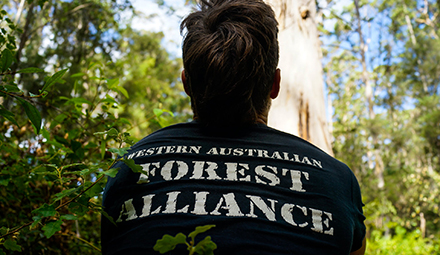The WA government’s plan to stop native logging continues to be criticised with lobby groups on both sides speaking out. Source: Busselton Mail
In September 2021 the government announced it would end native timber logging from 2024, leaving nearly two million hectares of native forests protected.
Since the announcement the government has established a Native Forest Transition Group to prepare a plan for the industry once logging stops in 2024.
In early January the group gave stakeholders a plan for “thinning” forests, which has seen a mixed response.
The WA Forestry Alliance said it was “concerned” and that more independent ecologists needed to lead the development of any program.
“The first thing that needs to be done is to consult and to achieve scientific and community consensus on what kind of program will in fact improve the forests’ ecological health,” Alliance convenor Jess Beckerling said.
A Department of Biodiversity, Conservation and Attractions spokesperson said ecological thinning meant removing smaller trees to reduce current and future moisture stress.
“The location, scale and extent of ecological thinning and any timber that may arise from this activity, will be determined in more detail as part of the drafting process for the Forest Management Plan,” they said.
Forest Industries Federation WA chief executive Adele Farina said timber thinning was not a new concept.
“A significant amount of scientific research having already been completed which clearly show the benefits, particularly in a drying climate,” she said.
“This scientific research also shows that large scale thinning is required to maintain forest health and to improve water runoff into rivers and streams.
“Most in the community would expect WAFA [support] measures that improve forest health.”
However, the federation said it was frustrated at the lack of clarity and certainty from the government to impacted businesses.
“Government needs to provide timber businesses and workers with clarity and certainty and immediately make available exit packages for workers and businesses forced to exit the industry as a result of its decision,” Ms Farina said.
The department spokesperson said as part of the transition plan the government had allocated $50 million to develop assistance packages supporting workers, businesses and communities to transition to new or alternate industries.
“A project team has been established to work with industry and community to develop support programs,” they said.
“It is anticipated that these programs will be available in the first half of 2022. This should provide sufficient time for workers and business to make informed, supported decisions about their future well in advance of December 2023.”
Ms Farina has also accused Premier Mark McGowan of not keeping his promise to look after the impacted timber businesses.
“When [Mr] McGowan made his announcement to stop harvesting native forests by the end of 2023, he publicly pledged that the government would meet current contractual obligations to the end of 2023,” she said.
Since that statement, Ms Farina said letters had been sent to timber businesses advising them that volumes of sawlog supplied by the Forest Products Commission (FPC) in 2022 would fail to meet those obligations.
“It is unconscionable for the government to expect timber businesses to continue to operate and incur significant losses while the government drags its feet on business closure payments and business transition payments,” she said.
Shadow forestry minister Steve Martin echoed Ms Farina’s sentiments and said the government had added “insult to injury” to the WA timber sector by failing to deliver on the contracts.
“The government has to stand by the contracts that are in place and not further cut timber supply to the timber mills in WA’s South West,” he said.
“The communities already reeling by the government’s shock decision to shut down hard wood logging have been dealt another blow by this latest betrayal.”
In a press conference on January 10, Mr McGowan said the statements about the contracts were “not correct”.
He said businesses would receive the same amount of volume which was consistent with what they had been receiving over the last seven years.






